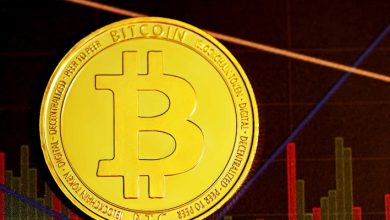DeFi Market Insights: Growth, Challenges, and Opportunities

- The Rise of DeFi: Exploring the Explosive Growth in the Market
- Navigating the Challenges of Decentralized Finance Platforms
- Unlocking Opportunities: How DeFi is Revolutionizing Traditional Finance
- Regulatory Hurdles: The Legal Landscape for DeFi Projects
- Investor Perspective: Strategies for Success in the DeFi Market
- Future Outlook: Predictions and Trends for the DeFi Industry
The Rise of DeFi: Exploring the Explosive Growth in the Market
The rise of Decentralized Finance (DeFi) has been nothing short of remarkable, with the market experiencing explosive growth in recent years. DeFi has revolutionized the traditional financial system by offering decentralized solutions for borrowing, lending, trading, and more.
One of the key drivers behind the growth of DeFi is the increasing demand for financial services that are not controlled by centralized authorities. Users are attracted to DeFi platforms for their transparency, security, and accessibility, as well as the potential for higher returns compared to traditional financial products.
As the DeFi market continues to expand, it faces various challenges such as scalability, security vulnerabilities, and regulatory uncertainty. However, these challenges have not deterred the growth of DeFi, as developers and users continue to innovate and find solutions to overcome these obstacles.
Despite the challenges, the DeFi market presents numerous opportunities for investors, developers, and users alike. With the potential to disrupt the traditional financial system and create new avenues for financial inclusion, DeFi is poised to continue its explosive growth in the coming years.
Navigating the Challenges of Decentralized Finance Platforms
Navigating the challenges of decentralized finance platforms can be a daunting task for newcomers to the DeFi space. One of the key difficulties faced by users is the complexity of the platforms themselves. With a wide range of protocols, smart contracts, and decentralized applications to navigate, users can easily become overwhelmed by the sheer amount of information to process.
Another challenge is the security risks associated with DeFi platforms. As decentralized finance operates on blockchain technology, there is always a risk of hacks, scams, and vulnerabilities that can result in financial losses for users. It is essential for users to stay informed about security best practices and to use reputable platforms to minimize these risks.
Additionally, the fast-paced nature of the DeFi market can make it challenging to keep up with the latest trends and developments. This can lead to missed opportunities for users who are not actively engaged in the DeFi community. Staying informed through social media, forums, and news outlets is crucial for users looking to make the most of their investments in decentralized finance.
Overall, while navigating the challenges of decentralized finance platforms can be difficult, it is not impossible. By staying informed, practicing good security habits, and taking the time to understand how different protocols work, users can successfully navigate the world of DeFi and take advantage of the opportunities it presents.
Unlocking Opportunities: How DeFi is Revolutionizing Traditional Finance
Decentralized Finance (DeFi) is reshaping the landscape of traditional finance by unlocking new opportunities for individuals to access financial services in a more open and inclusive manner. DeFi protocols leverage blockchain technology to enable peer-to-peer transactions without the need for intermediaries, offering users greater control over their assets and financial decisions.
One of the key ways in which DeFi is revolutionizing traditional finance is through the concept of smart contracts. These self-executing contracts automatically enforce and facilitate the terms of an agreement between parties, eliminating the need for third-party intermediaries such as banks or lawyers. This not only reduces costs but also increases the speed and efficiency of transactions.
Furthermore, DeFi platforms are enabling users to earn passive income through various decentralized applications (dApps) such as lending protocols, liquidity pools, and yield farming. By providing users with the opportunity to stake their assets and earn rewards, DeFi is democratizing access to financial products and services that were previously only available to a select few.
Regulatory Hurdles: The Legal Landscape for DeFi Projects
Navigating the legal landscape for decentralized finance (DeFi) projects can be challenging due to various regulatory hurdles. DeFi platforms operate in a borderless digital environment, raising questions about jurisdiction and compliance with traditional financial regulations.
One of the key issues facing DeFi projects is the lack of clarity around regulatory requirements. Regulators around the world are still grappling with how to classify and regulate DeFi platforms, leading to uncertainty for project developers and users alike.
Another major concern is the potential for DeFi projects to be used for money laundering, terrorist financing, or other illicit activities. Regulators are keen to ensure that DeFi platforms have robust anti-money laundering (AML) and know-your-customer (KYC) procedures in place to prevent abuse.
In addition to AML and KYC requirements, DeFi projects may also need to comply with securities laws if they offer tokenized assets or investment opportunities. This can add an extra layer of complexity to the regulatory landscape for DeFi platforms.
Overall, DeFi projects face a complex and evolving regulatory environment that requires careful navigation to ensure compliance and mitigate legal risks. Working closely with legal experts and staying informed about regulatory developments is crucial for the long-term success and sustainability of DeFi projects.
Investor Perspective: Strategies for Success in the DeFi Market
Investors looking to succeed in the DeFi market should consider a variety of strategies to navigate the ever-changing landscape. One key strategy is diversification, spreading investments across different DeFi projects to mitigate risk. It’s also crucial to stay informed about the latest trends and developments in the market, as well as conducting thorough research before making any investment decisions. Additionally, staying updated on regulatory changes and compliance requirements can help investors avoid potential pitfalls in the DeFi space.
Another important aspect to consider is the importance of due diligence when evaluating potential investment opportunities. Conducting thorough research on the team behind a DeFi project, as well as its technology and potential for growth, can help investors make more informed decisions. Furthermore, staying updated on market sentiment and monitoring for any red flags can help investors avoid scams and fraudulent projects.
Moreover, it’s essential for investors to have a long-term perspective when investing in the DeFi market. While there may be opportunities for quick gains, the volatility of the market means that it’s crucial to have a solid investment strategy in place. By diversifying their portfolio, staying informed, conducting due diligence, and keeping a long-term perspective, investors can increase their chances of success in the dynamic DeFi market.
Future Outlook: Predictions and Trends for the DeFi Industry
The DeFi industry is poised for continued growth and innovation in the coming years. As more investors and users become aware of the benefits of decentralized finance, we can expect to see an increase in the adoption of DeFi platforms and protocols. This will lead to a surge in the total value locked in DeFi projects, as well as an expansion of the range of financial services available in the DeFi ecosystem.
One of the key trends to watch out for in the future is the rise of cross-chain interoperability in DeFi. As different blockchains and protocols become more interconnected, users will be able to access a wider range of assets and services without having to rely on a single platform. This will not only increase the efficiency of DeFi transactions but also reduce the risks associated with platform-specific vulnerabilities.
Another important development to keep an eye on is the evolution of decentralized autonomous organizations (DAOs) in the DeFi space. DAOs are community-run organizations that operate without centralized control, making decisions through voting mechanisms and smart contracts. As DAOs become more prevalent in DeFi, we can expect to see new forms of governance and collaboration emerge, enabling greater transparency and accountability in the industry.



